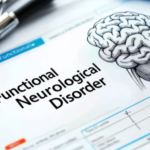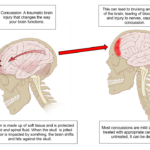
How Physiotherapy Can Improve Our Lifestyle: A Holistic Approach to Well-being
In today’s fast-paced world, maintaining a healthy lifestyle is essential for overall well-being and quality of life. While many people associate physiotherapy with injury rehabilitation, its benefits extend far beyond the treatment of musculoskeletal conditions. Physiotherapy encompasses a holistic approach to health and wellness, focusing on improving physical function, mobility, and quality of life. In this comprehensive guide, we’ll explore how physiotherapy can enhance our lifestyle through personalized interventions, preventive strategies, and empowering individuals to live healthier, more active lives.
Promoting Physical Activity and Exercise:
Physical activity is a cornerstone of a healthy lifestyle, offering numerous benefits for both physical and mental health. Physiotherapists play a key role in promoting physical activity and exercise by prescribing personalized exercise programs tailored to individuals’ needs, preferences, and goals. Whether it’s through cardiovascular exercise, strength training, flexibility exercises, or balance training, physiotherapy helps individuals improve fitness, manage weight, and reduce the risk of chronic diseases such as heart disease, diabetes, and obesity. By incorporating regular physical activity into their lifestyle, individuals can boost energy levels, improve mood, and enhance overall well-being.
Preventing and Managing Chronic Conditions:
Chronic conditions such as arthritis, diabetes, and cardiovascular disease pose significant challenges to individuals’ health and well-being. Physiotherapy offers preventive strategies and management techniques to help individuals reduce the risk of developing chronic conditions and better manage existing health issues. Through education, lifestyle modifications, and therapeutic interventions, physiotherapists empower individuals to adopt healthy habits, manage symptoms, and improve functional capacity. By addressing risk factors such as sedentary behavior, poor posture, and improper movement patterns, physiotherapy promotes long-term health and reduces the burden of chronic disease on individuals and society.
Improving Mobility and Independence:
Maintaining mobility and independence is essential for maintaining a high quality of life, particularly as we age. Physiotherapy focuses on improving mobility, balance, and coordination through targeted exercises, manual therapy, and functional training. By addressing musculoskeletal imbalances, joint stiffness, and mobility restrictions, physiotherapists help individuals regain independence in activities of daily living, such as walking, dressing, and bathing. Additionally, physiotherapy interventions reduce the risk of falls and fractures, enhancing safety and confidence in performing everyday tasks. By optimizing mobility and independence, physiotherapy enables individuals to live actively and independently for as long as possible.
Managing Pain and Discomfort:
Chronic pain affects millions of people worldwide, impacting their physical function, mental health, and overall quality of life. Physiotherapy offers a holistic approach to pain management, addressing the underlying causes of pain and discomfort through a combination of manual therapy, therapeutic exercises, modalities, and education. Physiotherapists assess individuals’ pain levels, functional limitations, and psychosocial factors to develop personalized treatment plans that target pain relief, improve mobility, and enhance coping skills. By empowering individuals with self-management strategies and pain coping techniques, physiotherapy helps them regain control over their lives and reduce the impact of pain on their lifestyle.
Enhancing Mental Health and Well-being:
Physical health and mental health are closely interconnected, with each influencing the other in profound ways. Physiotherapy recognizes the importance of mental well-being in overall health and incorporates strategies to enhance mental health and emotional well-being. Through exercise therapy, relaxation techniques, mindfulness practices, and stress management strategies, physiotherapists help individuals reduce stress, anxiety, and depression while promoting feelings of relaxation, positivity, and resilience. By fostering a supportive and empowering environment, physiotherapy contributes to improved mental health outcomes and a greater sense of well-being in individuals’ lives.
Supporting Healthy Aging and Longevity:
As the population ages, there is a growing need for services and interventions that support healthy aging and promote longevity. Physiotherapy plays a vital role in helping older adults maintain functional independence, vitality, and quality of life as they age. Through comprehensive geriatric assessments, fall prevention programs, and functional rehabilitation, physiotherapists address age-related changes, mobility limitations, and chronic conditions common in older adults. By promoting active aging, optimizing physical function, and enhancing social participation, physiotherapy enables older adults to live life to the fullest and enjoy a higher quality of life in their later years.
Physiotherapy offers a holistic approach to health and well-being, addressing physical, mental, and social aspects of individuals’ lives. By promoting physical activity and exercise, preventing and managing chronic conditions, improving mobility and independence, managing pain and discomfort, enhancing mental health and well-being, and supporting healthy aging and longevity, physiotherapy empowers individuals to lead healthier, more active lifestyles. Through personalized interventions, preventive strategies, and ongoing support, physiotherapy enables individuals to achieve their health and wellness goals and enjoy a higher quality of life at every stage of life.





